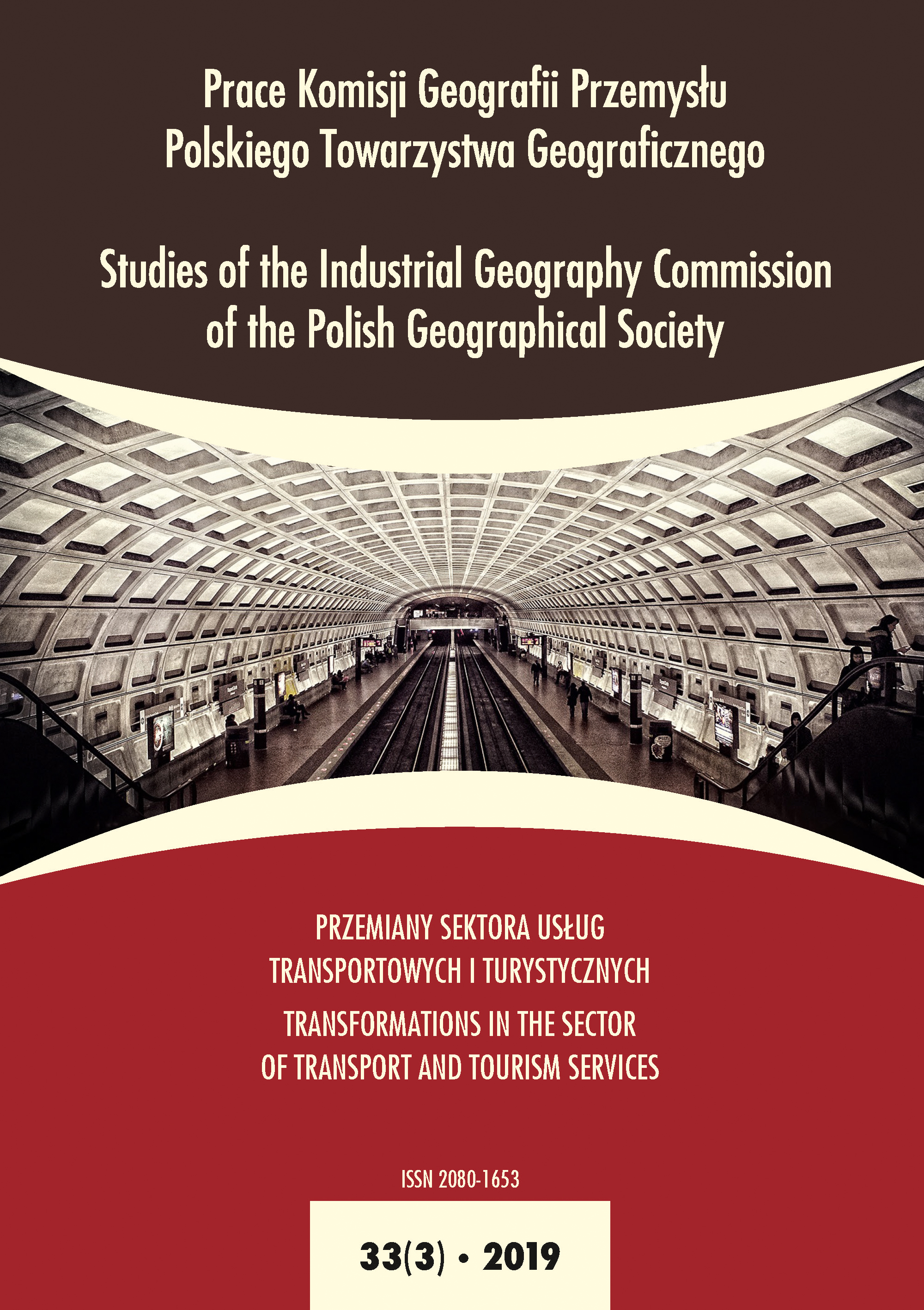Transfer of Human Capital from the Multinational Service Centres and the Competitiveness of MSME in the West-Pomeranian Region
DOI:
https://doi.org/10.24917/20801653.333.5Keywords:
competitiveness, innovativeness, MSME, service centres, spillovers, transfer of human capital, transfer of knowledgeAbstract
Poland is currently at the forefront of places in Central and Eastern Europe, where international service centres are located. This shows the importance of analysing the impact they have on the development of the Polish economy. One of the important effects resulting from the presence of service centres is the flow of knowledge, including its transfer to the MSME sector - knowledge, which plays an increasingly important role in the process of shaping competitiveness, both in micro- and macroeconomic terms. The aim of the article is therefore to analyse the interactions between service centres with international coverage and smaller entities operating in local economies. Particular emphasis was placed on the flow of hidden knowledge resulting from the transfer of human capital between service centres and micro-, small- and medium enterprises located in the West Pomeranian region. The study uses quantitative research conducted in the years 2013-2016 on a representative sample of companies in the region. The research results indicate that there is a statistically significant relationship between the variables studied. They show that companies whose owners or employees have work experience in international service centres exhibit a more dynamic growth in turnover and bring more new products to the market. This has an impact on the competitiveness of these entities, also at the international arena.
Downloads
Metrics
References
ABSL (2016). Raport Sektor nowoczesnych usług biznesowych w Polsce 2016 przygotowany przez Związek Liderów Sektora Usług Biznesowych.
Acs, Z.J., Braunerhjelm, P., Audretsch, D.B., Carlsson, B. (2009). The knowledge spillover theory of entrepreneurship. Small Business Economy, 32, 15–30.
Arrow, K. (1962). The economic implications of learning by doing. The Review of Economic Studies, 29(3), 155–173.
Barney, J.B. (1992). Firm resources and sustained competitive advantage. Journal of Management, 17(1), 101–116.
Distanont, A., Khongmalai, O. (2018). The role of innovation in creating a competitive advantage. Kasetsart Journal of Social Sciences, doi: 10.1016/j.kjss.2018.07.009.
Dzikowska, M., Gorynia, M. (2012). Teoretyczne aspekty konkurencyjności przedsiębiorstwa – w kierunku koncepcji eklektycznej. Gospodarka Narodowa, 4, 1–30.
Głodek, P. (2018). Akademicki spin off. Wiedza, zasoby i ścieżki rozwoju. Łódź: Wydawnictwo Uniwersytetu Łódzkiego.
Kunasz, M. (2006). Zasoby przedsiębiorstwa w teorii ekonomii. Gospodarka Narodowa, 10, 33–48.
Łobacz, K. (2012). Koncepcja oceny procesu komercjalizacji przedsięwzięć gospodarczych w akademickich inkubatorach przedsiębiorczości. Szczecin: rozprawa doktorska, maszynopis powielony.
Łobacz, K. (2015). Źródła wiedzy warunkującej innowacyjne działania przedsiębiorcze –konsekwencje dla sterowania kierunkami rozwoju systemów gospodarczych. Nierówności Społeczne a Wzrost Gospodarczy, 41, 412–431.
Łobacz, K. (2018). Innovating and growing service-based entrepreneurial business–development model based on european and asian case studies. European Journal of Service Management, 28, 231–244.
Łobacz, K., Głodek, P. (2018). Rozwój kapitału ludzkiego poprzez działania przedsiębiorcze: znaczenie przedsiębiorczości akademickiej. Horyzonty Wychowania, 17(44), 167–177.
Łobacz, K., Głodek, P., Stawasz, E., Niedzielski, P. (2016). Utilisation of business advice in small innovative firms – the role of trust and tacit knowledge. Entrepreneurial Business and Economics Review, 4(2), 117–138.
Navaretti, G.B., Venables, A.J. (2004). Multinational Firms in the World Economy. Princeton University Press.
Niedzielski, P., Łobacz, K. (red.) (2017). Centra usług w układach regionalnych. Szczecin: Wydawnictwo Naukowe Uniwersytetu Szczecińskiego.
Radosevic, S., Yoruk, E. (2019). Entrepreneurial orientation of knowledge – based enterprises in Central and East Europe. W: F. Malerba, Y. Caloghirou, M. McKelvey, S. Radosevic (red.). Dynamics of Knowledge-Intensive Entrepreneurship: Business strategy and public policy, Routledge – preprint.
Romer, P. (1986). Increasing returns and long-run growth. Journal of Political Economy, 94(5), 1002–1037.
Rugraff, E., Hansen, M.W. (2011). Multinational corporations and local firms in emerging economies. An Introduction. W: E. Rugraff, M.W. Hansen (red.). Multinational Corporations and Local Firms in Emerging Economies. Amsterdam University Press.
Sass, M. (2011). The impact of foreign direct investment in business services on the local economy. The case of Hungary. W: E. Rugraff, M.W. Hansen (red.) Multinational Corporations and Local Firms in Emerging Economies. Amsterdam University Press.
Schumpeter, J.A. (1939). Business cycles: a theoretical, historical, and statistical analysis of the capitalist process. New York and London: McGraw-Hill.
Stankiewicz, M.J. (2002). Konkurencyjność przedsiębiorstwa. Budowanie konkurencyjności przedsiębiorstwa w warunkach globalizacji. Toruń: Dom Organizatora.
Downloads
Published
How to Cite
Issue
Section
License
Articles are published under the terms of the Creative Commons License (CC BY-ND 4.0; Attribution– NoDerivs).

